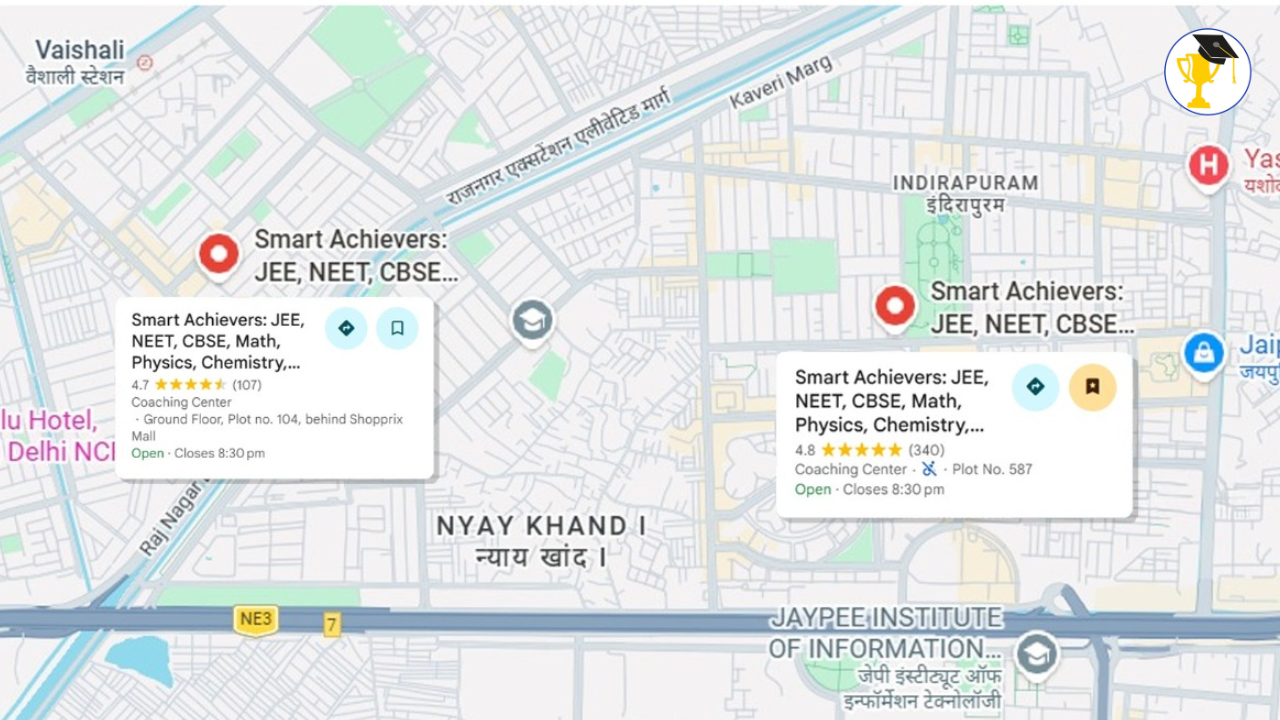Commerce and Finance with PCM Background After 12th: Admission, Courses, Colleges, Fees & Career Opportunities
Many students who choose PCM (Physics, Chemistry, Mathematics) in Class 12 believe their only path is engineering or pure sciences.
But here’s the truth — PCM students have a huge advantage in commerce and finance fields too!
With strong analytical and mathematical skills, PCM students can excel in areas like finance, economics, investment, and data-driven business analytics — all of which form the backbone of today’s global economy.
Why Choose Commerce and Finance After PCM?
Mathematics is the foundation of finance and business. PCM students already possess the logical reasoning and quantitative aptitude needed to succeed in commerce-related careers.
Key Advantages:
- Strong mathematical foundation
- Eligibility for top finance and business programs
- Opportunities in corporate, banking, and investment sectors
- High-income potential and international scope
- Flexibility to combine technical and business skills
Whether you dream of being a financial analyst, economist, investment banker, or entrepreneur, the PCM background gives you a competitive edge.
Top Courses After 12th PCM in Commerce & Finance
| Course Name |
Duration |
Degree Type |
Focus Area |
| B.Com (Bachelor of Commerce) |
3 years |
Undergraduate |
Finance, Accounting, Economics |
| B.Com (Hons.) |
3 years |
Undergraduate |
Advanced accounting and financial management |
| BBA (Bachelor of Business Administration) |
3 years |
Undergraduate |
Management, marketing, and finance |
| BMS (Bachelor of Management Studies) |
3 years |
Undergraduate |
Business operations and leadership |
| BA / B.Sc. Economics |
3 years |
Undergraduate |
Data, markets, and financial systems |
| BBA in Financial Markets / Banking |
3 years |
Undergraduate |
Capital markets and investment |
| Bachelor in Financial & Investment Analysis (BFIA) |
3 years |
Undergraduate |
Finance, stock markets, portfolio management |
| Actuarial Science / Statistics |
3–4 years |
Professional / Degree |
Risk management and mathematical modeling |
| CA (Chartered Accountancy) |
4–5 years |
Professional |
Accounting, taxation, auditing |
| CFA (Chartered Financial Analyst) |
2–3 years |
Global Certification |
Investment, portfolio, and wealth management |
| B.Sc. Data Analytics / FinTech |
3 years |
Undergraduate |
Data-driven business and financial technology |
PCM students can easily transition to these courses since Mathematics is a key requirement in many commerce and finance programs.
Eligibility Criteria
-
Qualification: 10+2 with PCM or PCM + Economics
-
Minimum Marks: 50–60% aggregate
-
Entrance Exams:
-
DUET / CUET – Delhi University & central universities
-
NPAT – NMIMS University
-
SET – Symbiosis University
-
Christ University Entrance Test – Bangalore
-
IPU CET / St. Xavier’s Entrance
-
Direct Admission: Available in several private universities based on merit
Top Colleges in India
For B.Com, BBA, and Economics
| College / University |
Location |
| Delhi University (SRCC, Hindu, Hansraj) |
Delhi |
| Christ University |
Bangalore |
| St. Xavier’s College |
Mumbai / Kolkata |
| Narsee Monjee Institute of Management Studies (NMIMS) |
Mumbai |
| Symbiosis Centre for Management Studies |
Pune |
| Loyola College |
Chennai |
| Amity University |
Noida |
| Lovely Professional University (LPU) |
Punjab |
| Chandigarh University |
Mohali |
For Finance and Economics Specializations
| Institute |
Focus Area |
| Indian Statistical Institute (ISI) |
Statistics, Data Science |
| Madras School of Economics |
Applied Economics |
| IIM Indore (Integrated Management Program) |
Business & Finance |
| NMIMS School of Commerce |
Banking and Financial Markets |
Fee Structure
| Type of Institution |
Average Annual Fees (INR) |
| Government Colleges |
30,000 – 90,000 |
| Private Universities |
1,00,000 – 3,00,000 |
| Professional Courses (CA/CFA) |
1,50,000 – 5,00,000 (total) |
Scholarships are offered by universities, government bodies, and private firms for meritorious students pursuing finance-related degrees.
Core Subjects You’ll Study
Depending on your chosen course, you’ll study a mix of mathematics, finance, and management subjects.
Common Subjects Include:
-
Business Mathematics
-
Accounting and Financial Management
-
Micro and Macro Economics
-
Cost and Management Accounting
-
Business Statistics and Analytics
-
Corporate Finance
-
Banking and Insurance
-
Taxation and Auditing
-
Investment Analysis
-
Business Law and Ethics
You’ll also learn modern financial tools like Excel, Tally, Power BI, SQL, and Python for Finance.
Career Opportunities
Commerce and Finance graduates are needed in every industry — from banking and consulting to tech and entrepreneurship.
Top Career Roles
-
Financial Analyst
-
Chartered Accountant (CA)
-
Investment Banker
-
Data Analyst (Finance)
-
Business Consultant
-
Risk Manager
-
Corporate Banker
-
Economist / Research Analyst
-
Portfolio / Wealth Manager
-
FinTech Specialist
Top Employers
-
Deloitte, PwC, EY, KPMG
-
HDFC, ICICI, Axis Bank
-
Goldman Sachs, JP Morgan, Morgan Stanley
-
Infosys, TCS, Accenture (for Business Analytics)
-
Government institutions like RBI, SEBI, and NABARD
Global Opportunities
Finance is a universal language — meaning your skills can take you anywhere in the world!
| Country |
Average Salary (INR Equivalent) |
Common Roles |
| USA |
60–120 LPA |
Financial Analyst, Investment Banker |
| UK |
50–90 LPA |
Corporate Finance, Risk Manager |
| Canada |
45–75 LPA |
Business Analyst, Portfolio Advisor |
| Singapore |
40–80 LPA |
Financial Consultant, FinTech Analyst |
| UAE |
35–70 LPA |
Accountant, Finance Manager |
Certifications like CFA, CPA, or FRM can help you secure high-paying international jobs.
Higher Studies and Specializations
After graduation, you can pursue:
-
MBA in Finance / Business Analytics / Marketing
-
M.Com / M.A. Economics / M.Sc. Finance
-
CFA (Chartered Financial Analyst)
-
CPA (Certified Public Accountant – USA)
-
FRM (Financial Risk Management)
-
PGDM / PGPM (Business and Management Programs)
Emerging Specializations:
-
Financial Technology (FinTech)
-
Data Analytics for Business
-
International Business
-
Investment Banking and Portfolio Management
Salary Range in India
| Career Role |
Average Salary (INR/year) |
| Financial Analyst |
4–8 LPA |
| Chartered Accountant |
6–15 LPA |
| Investment Banker |
8–20 LPA |
| Data Analyst (Finance) |
5–10 LPA |
| Economist |
6–12 LPA |
| Risk Manager |
7–15 LPA |
| Business Consultant |
6–14 LPA |
Experienced professionals in banking, consulting, or investment sectors can earn INR 20–50 LPA or more.
Why Choose Commerce & Finance with PCM Background?
- Perfect blend of logic, numbers, and business
- High-paying and globally relevant careers
- Diverse job options — from finance to analytics
- Opportunities in both corporate and entrepreneurial sectors
- Ideal foundation for MBA or professional certifications
Conclusion
Choosing Commerce and Finance after 12th PCM is a smart decision for students who enjoy numbers, logic, and business strategy.
Whether you aim to manage investments, analyze markets, or lead financial operations — this career path offers growth, global exposure, and financial stability.
In a world driven by data and innovation, PCM students have what it takes to master money with logic.
Also Read this:
https://smartachievers.online/career-options-after-pcm-without-jee-scope-courses
 STUDY MATERIALS
STUDY MATERIALS
 COURSES
COURSES
 MORE
MORE






















